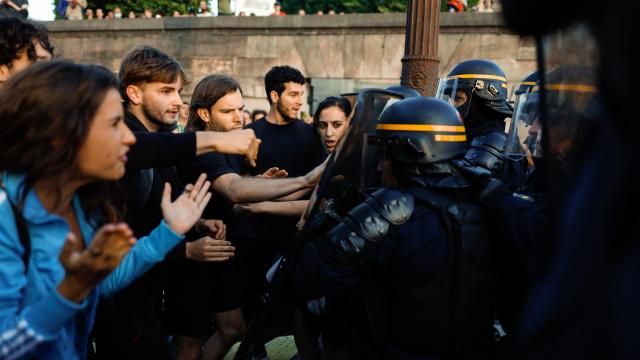Amidst ongoing protests in France, the country has just passed a new bill that will allow police to remotely access suspects’ cameras, microphones, and GPS on cell phones and other devices.
As reported by Le Monde, the bill has been criticised by the French people as a “snoopers” charter that allows police unfettered access to the location of its citizens. Moreover, police can activate cameras and microphones to take video and audio recordings of suspects. The bill will reportedly only apply to suspects in crimes that are punishable by a minimum of five years in jail and Justice Minister Eric Dupond-Moretti claimed that the new provision would only affect a few dozen cases per year. During a debate over the bill yesterday, French politicians added an amendment that orders judge approval for any surveillance conducted under the scope of the bill and limits the duration of surveillance to six months, according to Le Monde.
“For organised crime, the police can have access to the sound and image of a device. This concerns any connected device: telephone, speaker microphone, computer camera, computer system of a car… all without the knowledge of the persons concerned,” French advocacy group La Quadrature du Net said in a statement on Twitter last month, machine translated by Gizmodo. “In view of the growing place of digital tools in our lives, accepting the very principle that they are transformed into police auxiliaries without our being aware of it poses a serious problem in our societies.”
The bill comes after a time when the French government previously expanded police authority via technology. In 2021, The New York Times reported that the French Parliament passed a bill that would expand the French police force’s ability to monitor civilians using drones. French President Emmanuel Macron argued at the time that the bill was meant to protect police officers from increasingly violent protestors.
Late last month, protests began in France over the death of teenager Nahel Merzouk, who was shot and killed by a police officer. Protests have swept the country, with demonstrators frequently clashing with police. The passing of the bill comes as these protests have been raging for nearly two weeks. Macron also threatened to shut down social media platforms, as he claims that protestors are filming, posting, and organising on apps like TikTok, Snapchat, and Telegram.
